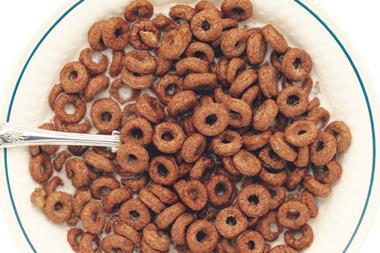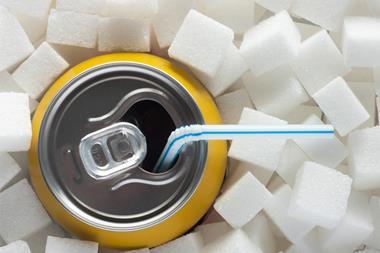This article is part of our digital feature on breakfast 2016.
Concerns over the sugar content of cereals have worsened, exclusive research for The Grocer reveals.
A staggering 71% of Brits now believe most cereals aimed at children are full of sugar, up from 38% a year ago, according to research by Harris Interactive. And two-thirds (66%) of the 2,116 consumers polled say brands need to do more to reduce the amount of sugar in their products.
“Consumers are increasingly worried about sugar in their diets and we do understand these concerns and are actively committed to reducing the sugar in our cereals so we meet WHO guidance on sugar intake,” says Toby Baker, marketing director UK & Australia for Cereal Partners Worldwide.
| With regards to breakfast cereals, which of the following statements do you agree with? | |||
|---|---|---|---|
| Agree | Neither agree or disagree |
Disagree | |
| Cereals are a great source of fibre | 62% | 34% | 4% |
| Most cereals aimed at children are full of sugar | 71% | 23% | 6% |
| Cereal brands need to do more to reduce the amount of sugar | 66% | 28% | 6% |
| Certain products, such as muesli, are healthy, but other cereals are not | 41% | 42% | 17% |
| They are the best start to the day because they keep me fuller for longer | 43% | 42% | 15% |
| Granola makes you think it is healthy, but most are full of sugar | 44% | 48% | 8% |
| Cereals are full of sugar and not good for you | 34% | 44% | 22% |
| I used to think they were healthy but now my attitude has changed | 27% | 45% | 28% |
| I try to avoid them | 19% | 31% | 49% |
| Wholegrain cereals are healthy, others are not | 41% | 45% | 14% |
| High protein cereals are just a fad | 26% | 53% | 20% |
| High protein cereals are a great way to start the day | 43% | 47% | 10% |
These concerns are taking their toll on cereal sales. RTE cereals sales plummeted by £37.2m with the brunt borne by the category’s biggest brands [Kantar Worldpanel 52 w/e 24 April 2016].
Nevertheless, cereals still account for a large proportion of breakfast occasions, with 71% of Brits eating them at least once a week and nearly a third (29%) tucking into them every day.
And, like brands, consumers are focusing on the positives as more people believe cereals are a great source of fibre (62%), while nearly half (43%) say they’re the best way to start the day because they keep you fuller for longer.
“We are also trying to talk about the positives so we know wholegrains are a really important part of people’s diets and we know people who eat cereals with wholegrain have a healthier body weight, better intake of vitamins and more fibre,” adds Baker. “Nestlé breakfasts have a green banner guaranteeing 8g of wholegrain per 30g serving - wholegrain is a really good source of fibre.”
High-protein cereals are also gaining prominence among consumers, as 43% say they are a great way to start the day. Nearly half of those aged 25-44 believe this compared with just 36% of younger Brits.
Tapping this awareness offers an opportunity for brands that are being outperformed by own label, particularly in the discounters. “The protein trend, while becoming more mainstream, is really only getting started at breakfast time,” says Chris Dubois, head of global insights at Weetabix. “There are certain segments of the category in strong growth like protein and gluten-free cereals and things like granola. Innovation like this can help better meet consumers’ needs.”
Previous article: Revealed: The true impact of bacon & bangers cancer
Next article: On the go: Can in-store brekkie bars offer a smarter start?
In association with:

10 things you need to know about... breakfast

For our latest digital feature we’ve turned our attention to the most important meal of the day. So how is it changing?
- 1
- 2
 Currently
reading
Currently
reading
Concern over kids cereal sugar content is mounting
- 4
- 5
- 6
- 7
- 8






























No comments yet